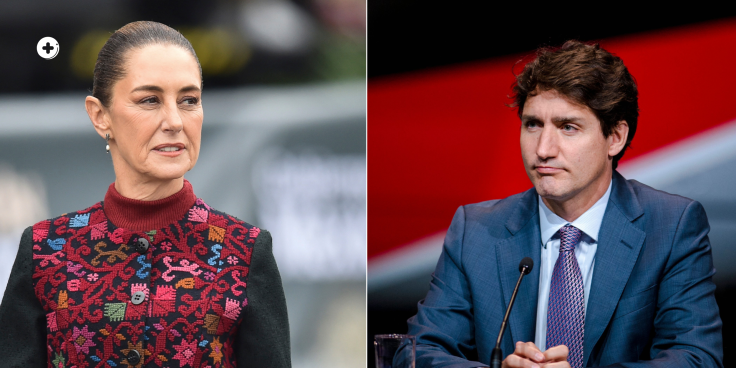
Mexican president Claudia Sheinbaum felt obliged to defend Mexico last week in reaction to Canadian authorities such as the Canadian Ambassador to the U.S. and the Ontario Premier, who had previously offered public comments looking to differentiate the differentiate their country from their southern counterpart on bilateral issues with the United States, comments Sheinbaum felt were "provocations".
"We will not fall into provocations about which country is better; what matters is that Mexico must be respected, especially by our trade partners," said the recently-elected president during her a press conference.
It was the latest episode in a brewing rift caused by Trump's promised tariff policies against both countries which has led analysts to warn about the potentially dire effects on American consumers.
Now a new piece published by The Hill makes the case that Mexico and Canada are competing for President-elect Trump's favor as his January 20 inauguration approaches, each vying to be considered the more essential North American ally.
According to the sprawling report, both countries recognize that they must align in order to negotiate effectively with the United States, a strategy that remains elusive at the moment. Trump's potential use of tariffs has led some to view his approach as a "divide and conquer" tactic between the two nations, both of which are major U.S. trade partners.
The aforementioned exchange of barbs between Canadian and Mexican authorities reflects the power imbalance within North American relations, exacerbated by Trump's demands. "With the incoming U.S. administration and with the announcements of tariffs that we've just heard in the last couple of weeks, there is a real question, sort of surrounding North America integration, about free trade," said Lila Abed, director of the Wilson Center's Mexico Institute, to The Hill.
Canada's Justin Trudeau has emphasized Canada's willingness to work with the U.S. and Mexico on trade, especially in response to claims that Mexico serves as a gateway for Chinese products into North American markets. Sheinbaum, in turn, has defended Mexico's cultural and historical significance, challenging comments about the country's role in the trade system.
The tensions also signal a growing divergence in political dynamics, with Canadian Conservative leader Pierre Poilievre, who's currently ahead in the polls for the country's 2025 elections, taking a more insular approach, focusing on "Canada first" in contrast to the broader North American regionalism of past agreements. Sheinbaum, on the other hand, is fresh off a landslide victory with approval numbers around 70%.
The pressure to maintain strong ties with Mexico and Canada may grow within the U.S. as trade with both countries supports millions of American jobs, particularly in border states like Texas. Additionally, the geopolitical and economic relationships with both countries—Canada as a NATO ally and major oil producer, Mexico as a crucial trade partner —are critical for U.S. prosperity and national security.
"Mexico's prosperity is of national security importance to the United States," explained David Goldwyn, an international energy consultant to The Hill. "A prosperous Mexico which generates economic growth and sufficient employment for its citizens and an environment which can host companies which can supply goods to the United States, reduces migration pressure, reduces the power of the cartels, increases the amount of trade between the two countries."
© 2025 Latin Times. All rights reserved. Do not reproduce without permission.






